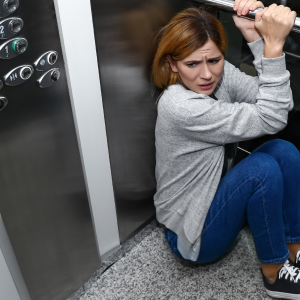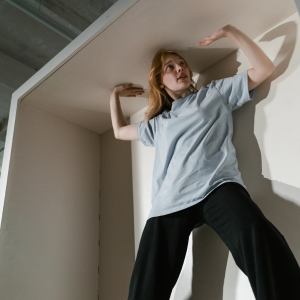When News Headlines Cause Emotional Stress: Claustrophobia Tips

Few of us will ever step aboard a submersible like the one that vanished this week en route to the wreckage of the Titanic.
But the story captivated public attention and generated thousands of posts on Twitter and TikTok, as users wondered what it would be like to be trapped miles underwater in a craft about the size of a minivan. Some reported feeling panicky when hearing news accounts of the search, especially details about the cramped conditions inside the submersible.
“While the situation itself was highly unusual, the fear surrounding it is something we can all relate to,” said Kenny Dunn, MA, LCPC, and a manager with Memorial Behavioral Health. “Many of us feel uneasy or even frightened in small, enclosed spaces. Add to that the fear of being cut off from communication, in the dark, and it’s easy to understand why people around the world were following this story.”
Claustrophobia – an intense fear of enclosed spaces – is fairly common, with some researchers estimating it could affect up to 12 percent of the population. It can generate symptoms like panic, difficulty breathing, sweating, flashes of heat or chills and tightness in the chest.
“It’s not uncommon to feel uneasy or apprehensive in a small space,” said Dunn. “These are normal reactions. But those feelings are much more intense for a person experiencing claustrophobia, and they can affect daily life.”

Types of situations that may trigger claustrophobia:
- Airplane travel
- Elevators
- Healthcare tests like MRI or CT scans
- Other situations involving small spaces and a lack of control
But claustrophobia can be treated. Strategies like exposure therapy, in which a mental health professional helps an individual gradually overcome their anxiety by exposure to triggering situations, have been shown to be successful over time.
“If claustrophobia or any other form of anxiety is affecting your life in negative ways, you shouldn’t hesitate to seek help,” said Dunn.
Memorial Behavioral Health provides outpatient behavioral health services for children, adolescents, young adults and adults. Programs address emotional, social and behavioral needs of individuals and their loved ones who experience difficulties across home, social and community settings. Call Memorial Behavioral Health at 217-525-1064, Monday through Friday, 8:30 a.m. to 4:30 p.m. to be connected with services.